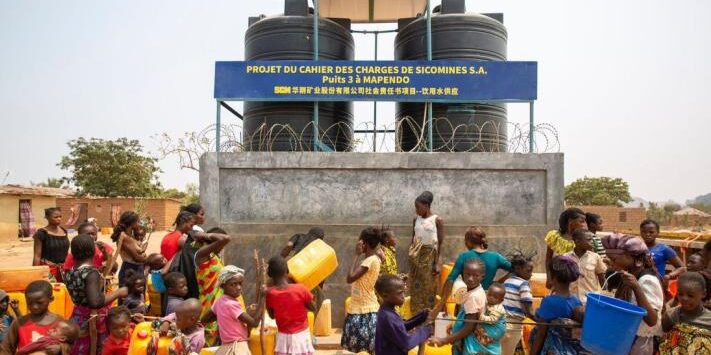SICOMINES SA Boosts Water Access on World Water Day
La Sino-Congolaise des Mines (SICOMINES SA) has taken strides to enhance water access for five communities within its mining area by constructing water boreholes.
These communities, including Kapata, Mutaka, Biwaya, Mapendo, and Yenge, have benefitted from this initiative, aligning with the theme of the 32nd World Water Day celebrated annually on March 22.
The initiative underscores SICOMINES’ commitment to fulfilling its specifications outlined in the agreement signed in August 2021 for the betterment of surrounding communities.
These specifications, set for a five-year term expiring in 2025, reflect the company’s dedication to supporting local development.
In addition to the recent borehole construction, SICOMINES has been actively involved in a broader water supply program. In 2023, the joint venture developed 18 drinking water wells, constructed a new water tower, and installed piping to supply drinking water to the Kapata district.
These initiatives extend beyond mere infrastructure development; they aim to positively impact the lives of citizens in the mining-affected communities.
Economist Joseph Alfred Matondo highlighted the significance of these projects in enhancing living conditions, health, and agricultural productivity in the region.
SICOMINES SA reaffirmed its commitment to achieving its objectives and shouldering its responsibilities toward employees, executives, dependents, and surrounding communities.
The company’s engagement spans various sectors, including education, health, infrastructure, agriculture, and environmental conservation.
World Water Day serves as a reminder of the importance of sustainable water resource management. Established by the United Nations in 1992, the day is commemorated annually on March 22, emphasizing the crucial role of water in maintaining health and well-being.
It also serves as a platform for organizations worldwide to address the global water crisis and promote access to clean water, essential for overall health and sanitation, according to the UN.
74 total views , 2 views today





